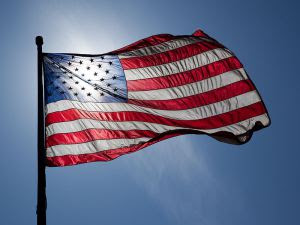This has been a remarkable week— one in which the core component of American philosophy has been rescinded, extended, and fiercely defended. Next week, we’ll gather in backyards and town squares to celebrate the land of the brave and home of the free. When I celebrate, it will be with a deeper understanding of the bravery it takes to ensure freedom for everyone. I’ll be reflecting on not just the events of this week, but the people at the center of them: the people whose freedom is most deeply affected. This week—this country—is about the freedom to vote, the freedom to marry, and the freedom to own body and soul.
The Freedom to Vote
Perhaps when I said that freedom has been rescinded I sounded a bit dramatic. After all, the Supreme Court’s decision to strike down part of the 1965 Voting Rights Act doesn’t prohibit anyone from voting. People of all races are still welcome at the polls.
Or are they?
The Voting Rights Act requires states with a history of discrimination to get federal approval before changing how they conduct elections; on Tuesday, the Supreme Court ruled that the map on which voting coverage is based is outdated and cannot stand as part of the law. Congress needs to review the voting data—which is from 1972—and update the map. Sounds fine, in theory. In practice, as analyst Tom Goldstein puts it, “…it’s probably the death knell of this provision.” Congress is too divided to effectively redraw the map—and racism still motivates too many people in power.
The states covered by the Voting Rights Act are largely Southern states: Alabama, Alaska, Arizona, Georgia, Louisiana, Mississippi, South Carolina, Texas and Virginia. And in the South, racism is still very much in play when it comes to voting and power. As Michael Steele explains, “We should not be misled to believe that those States subject to the provisions of the Voting Rights Act have in place the political infrastructure to protect and guard against race-based denial of voting rights, whether intentional or unintentional.”
Steele lists many such instances, including blatant efforts by some states to institute voter ID laws that effectively prevent African Americans from voting. Justice Ginsburg, in her dissenting opinion, cited one such power play in Mississippi, where a town canceled its election rather than risk electing black leaders (the Department of justice required an election—and sure enough, they elected black leaders).
So have voting rights been rescinded?
Not directly. But in practice, it will be a lot easier for racism to win at the polls, and a lot harder for many Americans to claim their freedom to vote.
The Freedom to Marry
Let freedom ring, baby! I am doing such a happy dance right now. In my post With Liberty and Justice for All I predicted that the issue of gay marriage would land at the Supreme Court, and that love and freedom would win the day. Although I believed that should and would happen, I didn’t expect it to happen so soon. The fact that it did gives me great hope, and great joy.
Here’s a quick rundown of Wednesday’s Supreme Court decisions:
On the Defense of Marriage Act (DOMA): DOMA, which defines marriage as a purely heterosexual affair, denied benefits to spouses in same-sex marriages. The Supreme Court ruled that to do so is unconstitutional, infringing on the equal protection guaranteed by the Due Process clause of the Fifth Amendment. In other words, married is married is married—just ask Edith Windsor, the woman who lost her wife and then had to pay estate taxes a heterosexual spouse would not have paid. Her case made it all the way to the Supreme Court—and then made history.
On Proposition 8: The Court also ruled that Proposition 8, a California ban on same-sex marriage, could not be legally defended in federal court. This means gay marriages will resume in California—the ban cannot stand. However, the court didn’t decide that banning same-sex marriage is unconstitutional.
The combined effect of these two decisions mean that we are moving closer to acknowledging the validity (and even the sanctity) of gay marriage as a nation—but that we aren’t there yet. State by state, love will still face intolerance. But you know what I think?
Love never fails.
The Freedom to Own Body and Soul
And then there’s Texas, where Senator Wendy Davis filibustered SB-5 (which would have closed almost every abortion clinic in the state) for 11 straight hours. She was amazing, standing there in pink tennis shoes and telling the stories of women who needed abortions, many of them before either birth control or abortion was widely available. The stories of women who needed to make their own decisions about their bodies and their life paths—to own themselves and their destinies, body and soul. Wendy Davis just became my new heroine, because she fought so fiercely for our freedom.
Although she did block the bill, Texas governor Rick Perry is calling for a special session next week to try to pass the bill without filibuster despite the fact that 80% of Texans don’t support it.
This freedom—the one women the world over have been struggling toward for centuries—is still very much on the line. Thanks to women like Senator Davis, I believe we will one day ensure that all American women can own their bodies and their decisions.
~by Elizabeth Hall Magill 6/28/13
Shared from: elizabethhallmagill.wordpress.com



Comments
Post a Comment